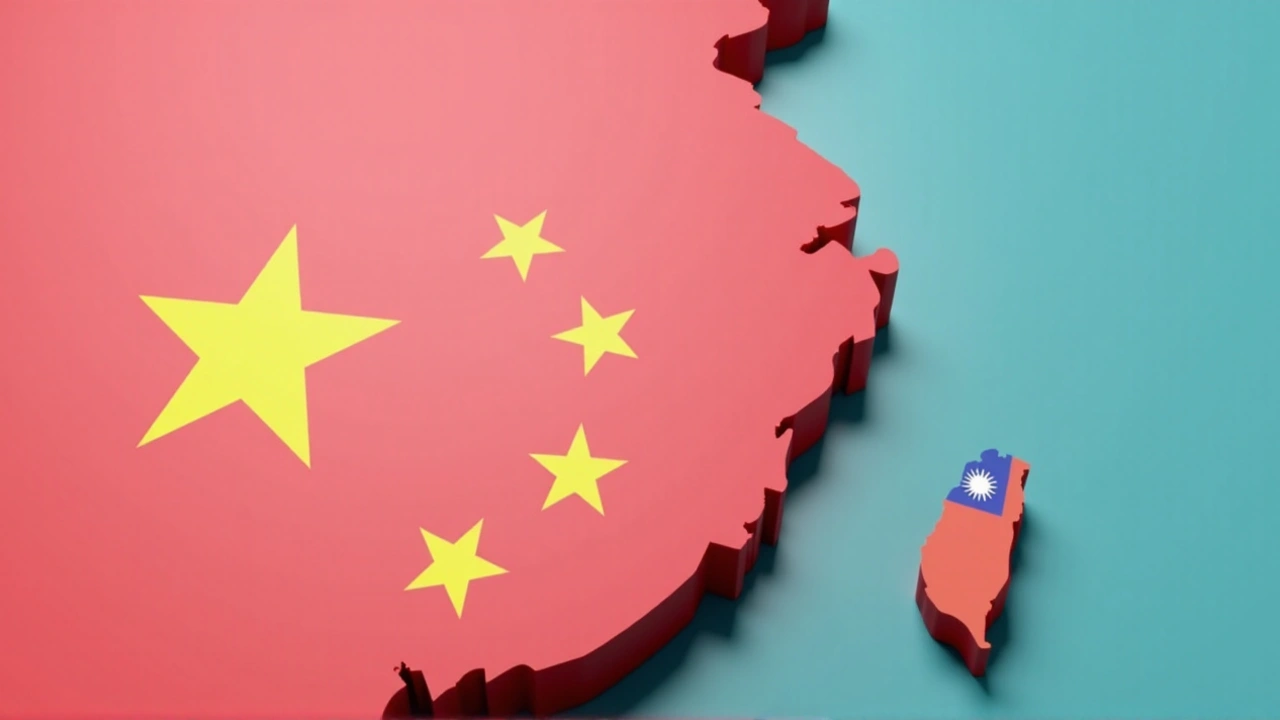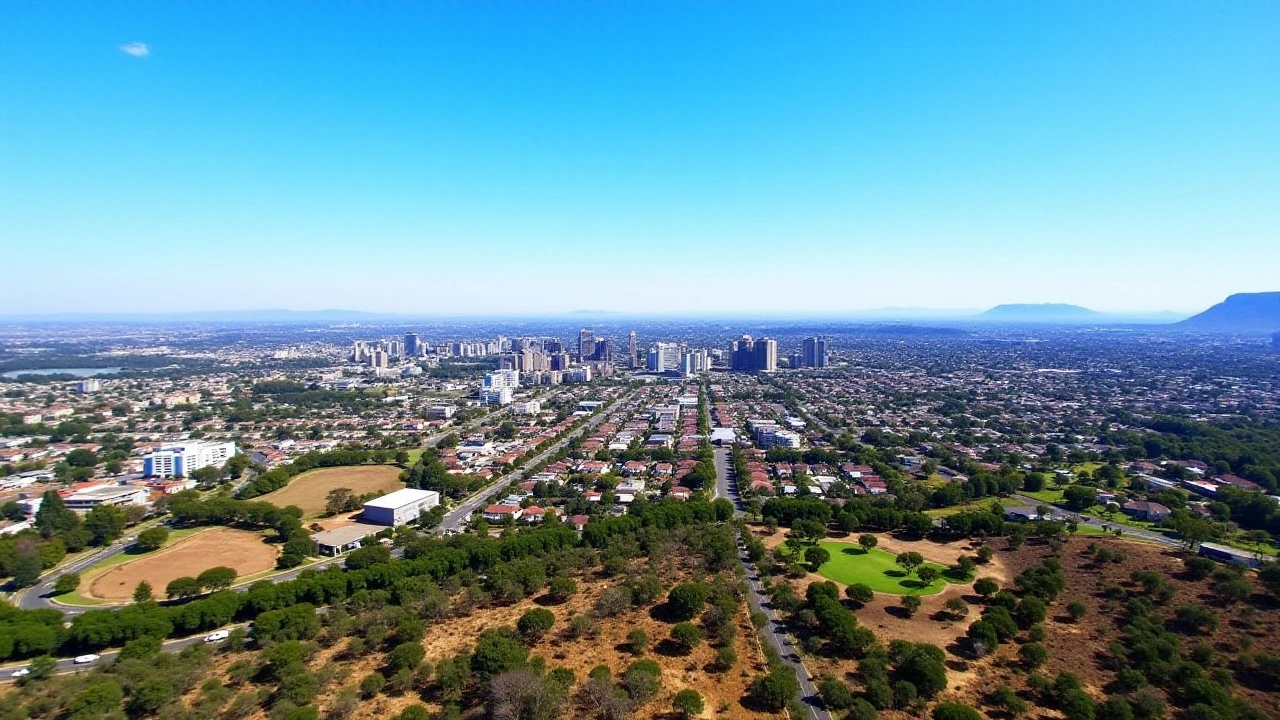South Africa's Diplomatic Decision
In a significant diplomatic move, the South African government has formally requested Taiwan to relocate its de facto embassy. Known as the Taipei Liaison Office, it has long stood in Pretoria, the nation’s capital. Now, the office is set to be moved to the bustling metropolis of Johannesburg. This change is not merely geographic. Alongside the shift, the Liaison Office will undergo a rebranding, emerging as the Trade Office. The decision has been allotted a six-month timeframe for completion.
South Africa's motivation for this relocation is deeply rooted in its diplomatic history and relations with major global players. Back in 1997, South Africa made a critical decision to sever formal diplomatic and political bonds with Taiwan, aligning itself more closely with China. This latest request appears to be a crystallized extension of that nearly three-decade-old decision, prompting a fresh look at how South Africa positions itself in the global arena.
Taiwan's Response and Its Concerns
Taiwan’s reaction to this relocation request has been filled with concern and criticism. The Taiwanese government swiftly accused South Africa of capitulating to Beijing’s pressures—a claim that South African officials firmly deny. South Africa maintains that this action is consistent with established diplomatic norms, eschewing any suggestion that it is merely dancing to another nation's tune.
Taiwan's Foreign Ministry has voiced unease, seeing this diplomatic dance as a potential strain on the otherwise cordial relations it has historically shared with South Africa. With just about a dozen formal diplomatic ties worldwide, mostly with smaller, developing nations, Taiwan is in no position to watch relationships fray.
China's Perspectives and Economic Relations
The People's Republic of China, on the other hand, has welcomed this diplomatic recalibration. South Africa's strategic pivot is music to Beijing's ears. Mao Ning, a spokesperson for the Chinese Foreign Ministry, has expressed China's approval, hailing the decision as a step toward further strengthening diplomatic solidarity between China and South Africa. Given that China is South Africa’s most prominent global trading partner, this diplomatic decision likely signals further advancements in trade, collaboration, and coordination between the two.
The Global Implications
The unfolding situation serves as a poignant example of how international relations can be influenced by trade interests and political alliances. For South Africa, enhancing ties with China is anticipated to open doors in sectors such as renewable energy and infrastructure. Reports suggest that as China continues to ascend as a global superpower, its gravitational pull on partner nations like South Africa becomes ever more potent.
Conversely, Taiwan is grappling with the realities of its limited formal diplomatic presence. How Taiwan navigates these changing tides will speak volumes about its capabilities to preserve sovereignty and project power on the world stage.

Looking Ahead
In response to South Africa's latest diplomatic maneuver, Taiwan is in contemplation mode. It is reportedly preparing to devise comprehensive strategies to defend its sovereignty and preserve the dignity Taipei holds dear. This may include recourse to diplomatic channels or stronger replies to secure Taiwan’s standing and amicable relationships worldwide.
As the months roll on, the world's eyes will remain fixed on how these changes play out. The global community is watchful, keen on understanding the nuances of these shifts and the broader implications for international relations. The constellation of diplomacy, trade, and global partnerships is in perpetual motion, and South Africa's request to Taiwan is but one episode in a much larger narrative of geopolitical strategy and alignment.
To the observer, this decision holds more than just geopolitical weight; it is a bellwether of the global order’s ever-changing dynamics. As nations navigate these uncharted waters, the relationships and outcomes will continue to reflect the multifaceted nature of diplomatic engagements in our contemporary world.


musa dogan
October 20, 2024 AT 01:19Drasti Patel
October 21, 2024 AT 14:13Mark Dodak
October 21, 2024 AT 16:19Stephanie Reed
October 22, 2024 AT 22:52Jason Lo
October 24, 2024 AT 10:24Brian Gallagher
October 25, 2024 AT 20:50Elizabeth Alfonso Prieto
October 26, 2024 AT 00:15Harry Adams
October 27, 2024 AT 02:57Kieran Scott
October 28, 2024 AT 19:20Joshua Gucilatar
October 30, 2024 AT 12:01jesse pinlac
October 31, 2024 AT 07:29Jess Bryan
November 1, 2024 AT 22:48Ronda Onstad
November 2, 2024 AT 06:23Shraddha Dalal
November 2, 2024 AT 23:01Steven Rodriguez
November 4, 2024 AT 01:28Zara Lawrence
November 5, 2024 AT 06:52Ashley Hasselman
November 6, 2024 AT 12:59Kelly Ellzey
November 7, 2024 AT 10:05Derek Pholms
November 7, 2024 AT 11:33